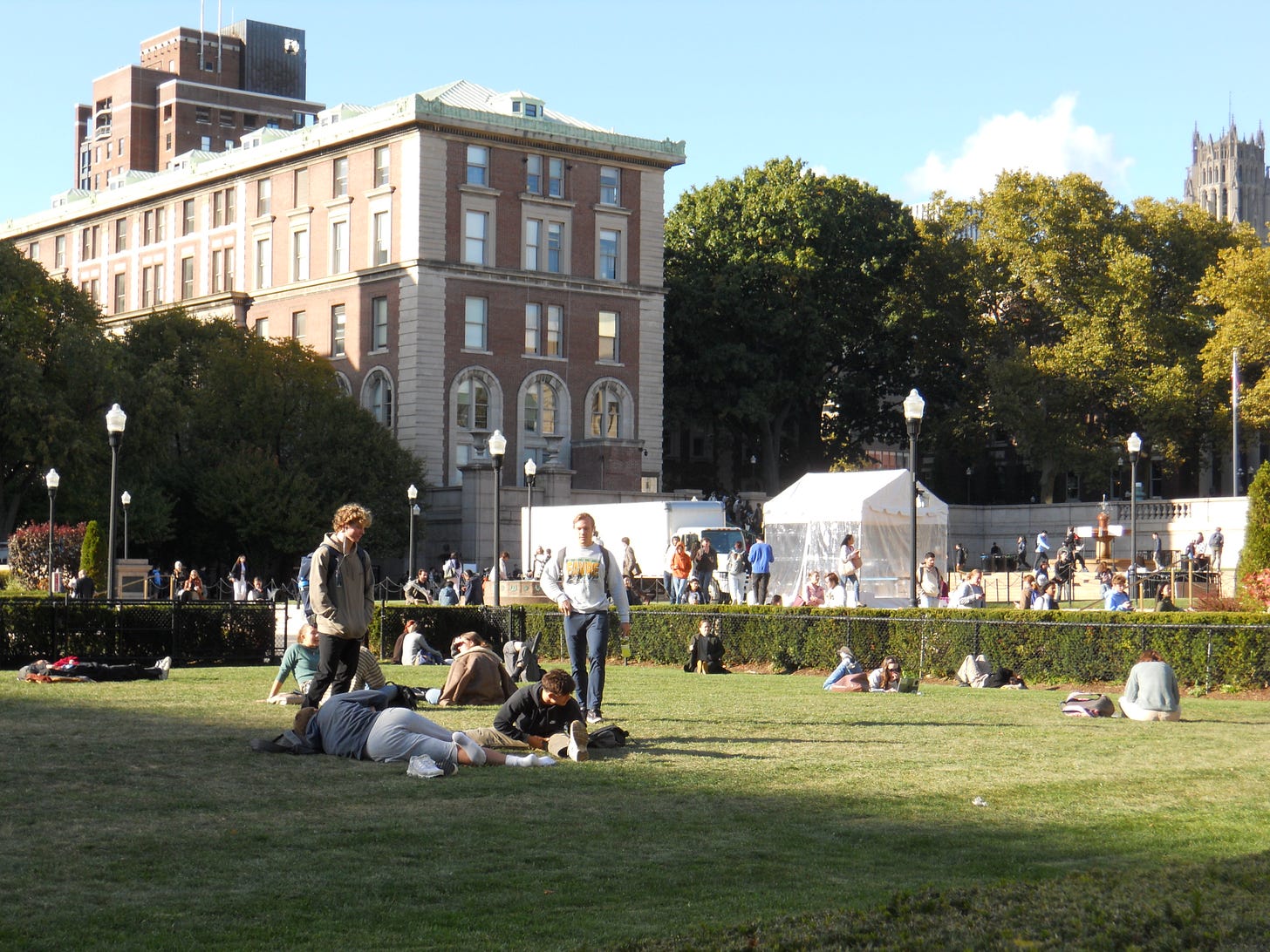Columbia Ranks Second-to-Last in Free Speech Rankings—Are Students To Blame?
What the data says about Columbia’s free speech crisis.
According to the never-ending grievances of student organizations across the political spectrum, our administration’s oppressive policies have effectively squashed students’ ability to engage in free speech. Yet the 2025 College Free Speech Rankings, released in September, present a different narrative: Columbia students are at least partly responsible for our suffocatingly anti-free speech campus culture.
From January to June, Foundation for Individual Rights and Expression and CollegePulse, a public opinion firm dedicated to surveying college students, surveyed over 58,000 college students and rated colleges based on a composite score of fourteen categories. The sample included 389 respondents from Columbia.
First, the good news: Despite Columbia’s overall ranking of 250 out of 251 schools studied, we rank eighth in “tolerance for speakers.” Indeed, last year student organizations peacefully hosted polarizing speakers such as Dennis Prager, founder of PragerU, and former Israeli spy Mossab Hassan Yousef. We were not without shoutdowns, though: Protestors shouted down Hillary Clinton during several events and the audience repeatedly heckled Speaker of the House Mike Johnson as he delivered a speech on Low Steps in April.
While Columbia students seem to be among the least bad when it comes to tolerating both liberal and conservative speakers, the data on disruptive conduct is nowhere near acceptable.
Three quarters of Columbia students believe that it may be acceptable to shout down a speaker to prevent them from speaking on campus. A third even say that it may be acceptable to use violence to shout down a speaker. This is a national problem across college campuses—69 percent of all students surveyed said it may be acceptable to shout down a speaker, and 32 percent say it may be acceptable to use violence.
The data also reveals a culture of self-censorship on campus. When asked how comfortable they would feel posting an unpopular political opinion to their social media account, just 6 percent of Columbia students say they felt “very comfortable” doing it. 81 percent said they felt more uncomfortable than comfortable. Nearly two-thirds of Columbia students say they have self-censored on campus at least once or twice a month.
When such a large proportion of students feel compelled to self-censor, it's likely not the opinion itself that creates the fear of controversy—the data suggests that general feelings of distrust among the student body are to blame. Students seem to deprioritize the expression of their true beliefs in the face of social pressure from friends and academic pressure from potentially biased professors. The effect is a space where the exchange of potentially uncomfortable ideas isn’t as tolerated or valued.
This amounts to a bit of a self-fulfilling prophecy: Students expect pushback for expressing a diverse range of opinions, and therefore avoid that pushback by pre-emptively self-censoring. When the campus hosts only a narrow set of opinions as a result, then students continue expecting pushback for opinions outside that range.
Professors are not necessarily helping. Seventy-two percent of Columbia students admitted that they have hid their political beliefs from their professor for the sake of getting a higher grade at some point.
Ideological clash should be welcomed in the classroom, and discussing contradictory beliefs is a crucial part of the learning process. Professors must make explicit to students that they are allowed and even welcome to disagree with them, as discomfort and disagreement are prerequisites for forming educated opinions.
The administration should also facilitate useful, free speech-positive guidelines. Days after the rankings were released, Barnard committed to a policy of “institutional neutrality,” meaning that it will refrain from issuing public statements on current events except “to offer sentiments of support for those who are directly affected or grieving.”
Institutional neutrality is built on the idea that it is not the administration’s place to adopt political stances or any other stance that the student body may subject to debate. Especially at a school like Barnard that emphasizes activism and change-making, students themselves should be the advocates, not the administration.
Columbia, on the other hand, has only begun looking into adopting institutional neutrality. While it’s by no means a miracle drug, neutrality is a strong encouragement for students to arrive at their own conclusions through robust debate and reflection, free from a biased administration.
This year’s data reveals a complicated truth: To promote free speech at Columbia, students must take responsibility for normalizing the exchange of uncomfortable and dissenting opinions, including both our own opinions and the opinions of people we disagree with. Humility in the student body, and a strong commitment from the faculty and administration to respect student discourse, will gradually improve our intellectual culture.
Mr. Baum is a sophomore in the joint degree program between Jewish Theological Seminary and the School of General Studies. He is a staff editor for Sundial.



